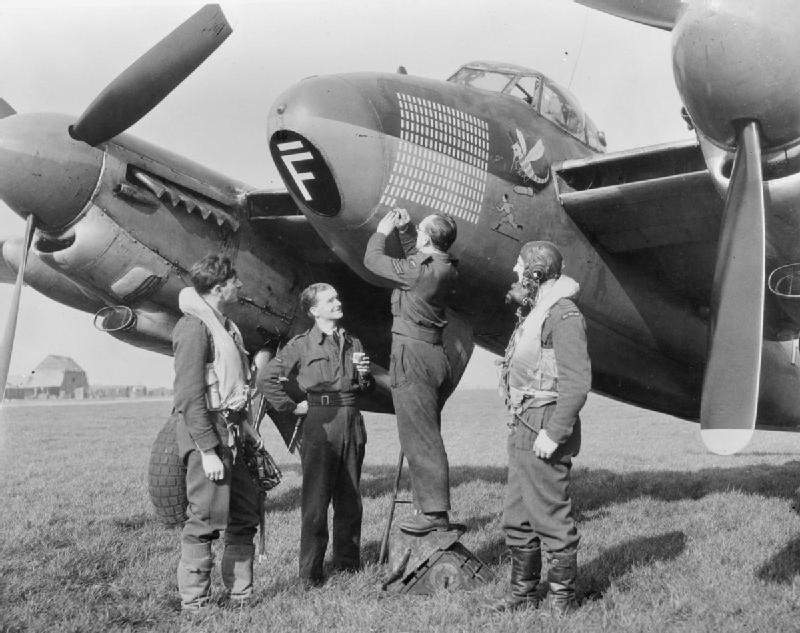
Seventy years ago the RAF fighter pilots who saved Britain were hailed as ‘the Few’. Today they are the doctors and nurses on the front line, writes Alec Marsh
During this nation’s last great battle for survival in the 1940s, the fate of the country rested on the shoulders of several thousand young men – pilots in the RAF.
During the Battle of Britain these pilots fought in an aerial battle raging over the skies predominantly of London and the South East – right now, coincidentally, the eye of the coronavirus storm in this country too – through the long summer of 1940.
When the four-month battle was over, the Luftwaffe had been defeated and the threat of a German invasion had been abated. Britain retained its air supremacy.
Winston Churchill paid homage to these brave men during the teeth of the conflict in a line known by almost every schoolboy since, perhaps even still: ‘Never has so much been owed by so many to so few.’ The pilots became known as ‘the Few’.
Without wishing to offend the sensibilities of our German readers, it’s pretty clear to see that the doctors and nurses working in the NHS today are the ‘new Few’ – in this country’s battle against Covid-19.
Like the Battle of Britain, ensuring the survival of as many of these brave men and women is essential for our national survival. We simply cannot afford to squander them or sacrifice them wantonly.
Which makes claims by a national body representing doctors on Sunday that they are being treated like ‘cannon fodder’ because of the paucity of protective clothing a national scandal.
One senior doctor I spoke to over the weekend told me that when he looks at the sort of protective clothing being used in Italy or the Far East he could weep. They have face masks and aprons and gloves and little else. He says his hospital only ordered extra protective clothing two weeks ago. It would be a joke if it wasn’t all so deadly serious.
‘When this all settles down and the toll on healthcare workers is totted up I suspect there will be a call for criminal action against the government,’ he tells me. Indeed, it was reported last week that 2,629 medical staff were infected with the virus in Italy, representing 8.3 per cent of total cases. Among the doctors who have died there was 57-year-old Marcello Natali, a regional chief of the Federation of General Practitioners who had been a notable critic of the government’s failure to supply adequate protective clothing.
Unsurprisingly frontline medical staff are afraid: afraid of not being able to help their patients properly, afraid of becoming infected and spreading the disease – and afraid of infecting their families. They are also – quite understandably – afraid for their own health. The doctor I spoke over the weekend knows of several senior doctors who are being ventilated for Covid-19 in London and the West Midlands. These are people whose skills are invaluable to this country.
Whether there are criminal proceedings against the government for its lack of preparations or other aspects of their management of the health emergency remains to be seen.
Personal sacrifice
For today, I think we can all agree that protecting the new Few is a national priority. Which is why the advice of the government must be followed – social distancing, being the foremost for all of us, and self-quarantining if you or those you are in contact with show relevant symptoms.
And here’s the point: if you fail in your public duty to do these things then you will be like those who breached the blackout during the war: the unthinking minority who endangered the lives of all those around them.
One week ago there were 1,540 cases of Covid-19 in the UK. Today there are more than 5,600. Last Monday 55 people had died. Yesterday it reached 281.
By the end of this, it is a safe bet that that number will be a lot higher, and the community of people who have closest proximity to this disease will bear the heaviest burden of mortality. That is NHS workers, who will be the ones to treat us – rich or poor. Many of these people – by dint of the fact that they will be among the older workers – will take with them vital experience and expertise that will leave a gap in this country’s health system of a decade or more.
Protecting these people is a national priority. The government must prioritise protective clothing: our doctors and nurses need the best Spitfires money can buy. But we all have a part to play in working hard not to catch or pass on this virus.
Depending on how matters play out in the long summer of 2020 before us, I predict this. We will not need to wonder anymore who to commemorate on the empty plinth on Trafalgar Square.
By the time this is over, we will have decided that it should go to the ‘new Few’, those men and women of the NHS who have risked life and limb to care for the rest of us. Because in the battle against Covid-19, what we know is this, their personal sacrifice is inevitable.
Alec Marsh is editor of Spear’s
Read more
‘Don’t panic’ – wealth managers react to Covid-19
Covid-19: A message from Spear’s to our readers









